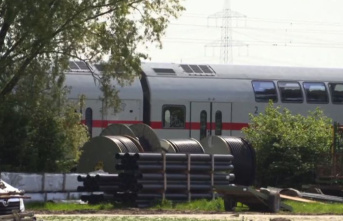BERLIN -- Germany's transport minister resented Thursday against plans to ban new cars with combustion engines in the European Union by 2035. He claimed that this would discriminate against synthetic fuel-powered vehicles.
Wednesday's vote by EU legislators was to support the measure that automakers must cut carbon dioxide emissions by 100 percent by the middle decade of the next decade. This effectively bans the sale of new cars in the bloc of 27 nations powered by diesel or gasoline.
Because lawmakers did not exempt vehicles powered by synthetic fuels from the ban, the plan would boost electric vehicles. However, it still needs to be approved in all EU member countries. German automakers will be hurt by the ban, which will affect their ability to produce powerful and high-end vehicles with combustion engines. However, they are now lagging behind foreign competitors when it comes electric cars.
Reporters in Berlin were told by Volker Wissing, German Transport Minister, that they did not agree with the decision.
He stated that he wanted to "design the transformation in a way which is technologically open." "This includes the registration of new cars after 2035, if they are exclusively powered by synthetic fuels in an environmentally neutral manner."
Synthetic fuels, also known as e-fuels or refuels, can be made from basic chemical processes or electricity. The fuels that are generated from renewable sources like wind and solar, are considered "climate neutral" because they release as little carbon as the previous generation.
Critics argue that e-fuels are not available in sufficient quantities to support electrification of all modes of transportation, including airplanes.
Experts from the Institute of Energy and Climate Research, Juelich, Germany have calculated that a mid-size car using synthetic fuel would consume seven times more energy than an equivalent electric vehicle.
Wissing is being pressured by Germany's powerful auto lobby organization VDA. This group criticized the vote of the EU Parliament as "a decision against technology innovation and development." It is not clear whether Wissing's position is shared with the rest.
The EU vote was cheered by environmentalists as a way for Europe to chart a better future.
About 12% of EU greenhouse gas emissions are caused by cars. Experts say that road transport is one sector that must reduce greenhouse gas emissions to net zero by 2050.
------
Follow all AP stories on climate change at https://apnews.com/hub/climate.












